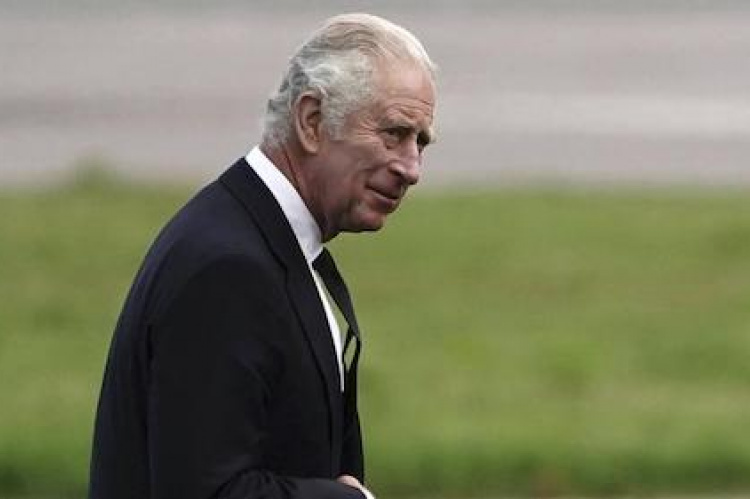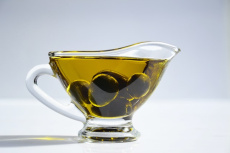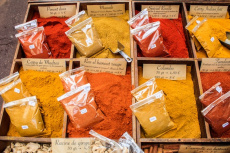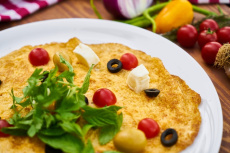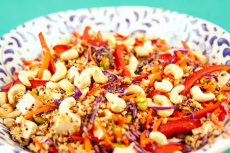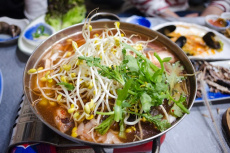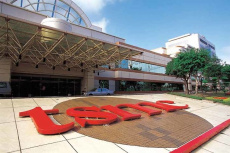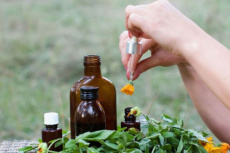The "green" King
Charles III leads by example and has been practicing organic farming for more than 40 years at Highgrove, his "green" retreat in the English countryside.
Is King Charles really an environmentalist or is it just posturing? Does he really put into practice what he preaches or does it all just talk about climate change? Will he now bite his tongue under the weight of the crown or will he continue to occasionally launch environmental messages?
Case all the answers we have in Highgrove, the "paradise-farm" of more than 364 hectares in Gloucestershire, where he gathered strength during Elizabeth II's funeral marathon next Monday. He got there by helicopter, and often travels by private plane. To compensate, he boasts that he's modified his Aston Martin, which now runs on biotheanol made from "leftover English white wine and whey from the cheese-making process.
His environmental coming of age came when he was 21, with a speech in Cardiff where he spoke for the first time about the impact of pollution, overpopulation and waste. Ten years later she decided to buy Highgrove and leaned as a gardening "teacher" on the Queen Mother, with whom she shared her budding passion at Birkhall, her own residence a stone's throw from Balmoral in Scotland.
Highgrove was something of her whim or her bachelor "project," and there she nurtured that four-decade passion for nature. In his last speech as Prince of Wales in Scotland, days before his mother's death, Carlos himself acknowledged that he was called an "idiot" when he opted for organic agriculture and livestock farming more than 40 years ago, due to his concern about the use excessive use of pesticides and antibiotics (influenced, among other books, by "The Silent Spring" by Rachel Carson.
"His environmental concern is completely sincere and is not simply a "green" pose, as some might think," Tony Juniper, ecological adviser to the then Prince of Wales and co-author with him of the documentary "Harmony " (2010) and the guidebook "Climate Change" (2017) in the popular Ladybird collection.
"His concern for him has a lot of experience behind it: Highgrove has kind of been his test lab," Juniper attests. "Furthermore, I have come to the conclusion that, had he not been Elizabeth II's successor, he would probably have been a farmer."
"Small farmers have become the buffer against economic uncertainty in food production," Carlos wrote in another of his pre-king pamphlets, "On the future of food," published in Country Life magazine. "They are the ones who bear all the risks and the ones who receive the worst portion of the benefits in the end."
Carlos spoke of his own experience. It was precisely in Highgrove that Duchy Organic was born: the line of more than 200 organic products goes from eggs to vegetables, through sauces and jams, an organic gin and even his own perfume (Highgrove Bouquet). The organic seal reaches more than 30 countries and invoices around 10 million euros a year.
His production-distribution agreement with Waitrose supermarkets broke molds in the United Kingdom, although his accession to the throne will force the king (he already announced it in his first speech) to resign from all his parallel jobs at the Prince Foundation, which possibly William will take over.
Carlos has in fact been gradually passing his eldest son the green witness, including a period as a student of his adviser Tony Juniper in Cambridge. In 2020, and led by David Attenborough (who is also 96 years old and was the second most revered Briton after the Queen), William launched the Earthshot award, which honors the work of people and institutions to "restore" the Earth.
The new king, who this summer urged the British to treat "the climate crisis as an emergency" when the British Isles exceeded 40 degrees for the first time in their history, will have to put his activism to soak under the weight of the Crown. Even so, it is to be hoped that, as he did at the Cop26 in Glasgow, he will take advantage of the great occasions to continue sending messages to his compatriots and disseminating concepts that he himself has put into practice on his farm, such as regenerative agriculture or the circular economy (Highgrove It has a rainwater harvesting system and a composting program for all organic waste).
Between April and October, by appointment, Britons and tourists alike can visit the gardens and listen to the monarch's personal greeting in the welcome video: "I have put my soul into Highgrove and all the things I have tried to do in this little corner of Gloucstershire They are the physical expression of my personal philosophy.
"My principle has been to work with nature and not against nature," emphasizes the monarch. "At Highgrove we do not use chemical products or fertilizers. Everything is organic, and everything has been grown with the help of a great team who have worked with me for years. My hope is that those who visit the garden will find the something that inspires, fascinates or relaxes them".
The journey begins with the Clock Garden, which was the first to grow, marking the verdant welcome to the Georgian mansion. From there we move on to the Terrace Garden, where the stone is wonderfully integrated with the vegetation in the oak pavilion, designed by Mark Hoare. The third stop is the Edible Garden with which Carlos anticipated the organic orchard trend, crowned by the tunnel of apples (up to 15 different varieties) and all kinds of cabbage and lettuce for home consumption.
For Carlos, gardening is an art related to painting. Naturalist Miriam Rothschild contributed precisely Highgrove's most dazzling brushstroke: the wildflower meadow, mown by sheep in the fall, where wild daffodils grow in all their yellow splendor, dappled with purple delfinium or the colors of up to 32 threatened species, such as the ox-eye daisy or the cockscomb.
The Mediterranean Garden, the Pérgola de las Rosas, the Camino de los Tilos or the Paseo de las Azaleas follow one another before our eyes with an incredible array of colors and aromas. For the end is the arboretum, the wildest part, designed by Carlos himself and with statues in honor of two of his most admired "ecoheroes": the Indian activist Vandana Shiva and the founder of the Soil Associattion Patrick Holding.
The transition between the garden and the farm is marked by more than 200 chickens, which not only give free-range eggs, but also fertilize the land. A sign makes it clear that we are in a "GMO-free zone." And a strange feeling takes over the visitor after a natural immersion that can last a whole morning.
"There will be those who think that Highgrove does not belong in the real world or that it is an expensive indulgence," the illustrious host acknowledges in his welcome video. "However, what we are seeing are nothing more than solutions based on nature, which is our best teacher.
"The monarch has not yet revealed what the future of his soul mansion in the English countryside will be, but he will probably continue to reserve it as part of his "green" legacy and as the place to reconnect with himself and with nature, which for his mother symbolized Balmoral in the Ecocesan Highlands.
(This article has been translated from the original in Spanish by Google Translate. Please excuse the errors.)

